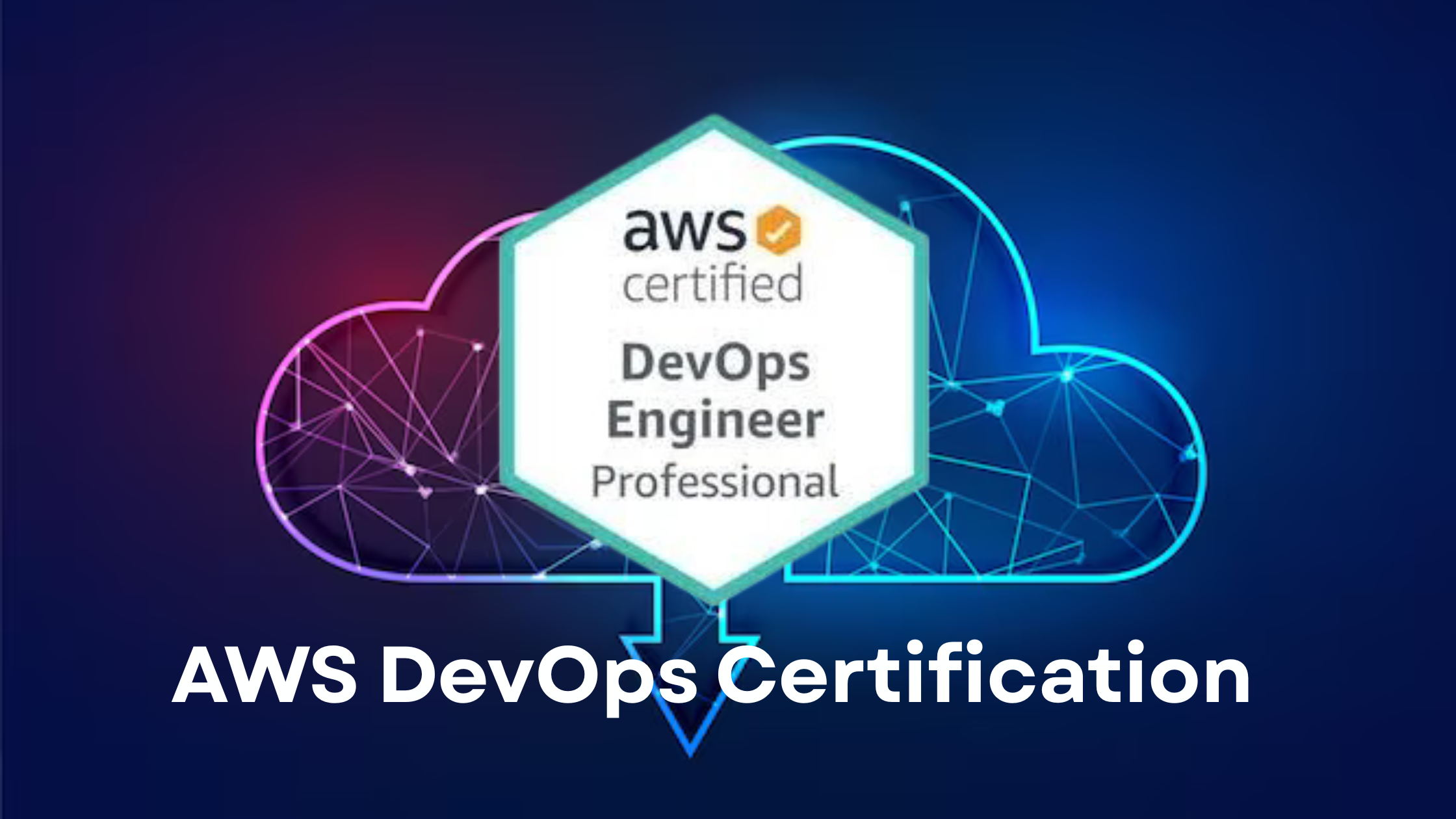Achieving AWS DevOps Certification: A Complete Guide
The demand for skilled DevOps professionals is rapidly growing as businesses strive to deliver software efficiently and reliably. Amazon Web Services (AWS) stands at the forefront of this movement with its specialized certification for DevOps engineers. Pursuing the AWS DevOps Certification validates your expertise in using AWS tools to automate processes, manage infrastructure, and enhance software development. In this comprehensive guide, we’ll explore the significance of the AWS DevOps Certification, its benefits, the steps to achieve it, and how it can elevate your career.
What Is AWS DevOps Certification?
The AWS DevOps Certification, formally known as the AWS Certified DevOps Engineer – Professional, is a highly regarded credential in the cloud computing and software development domains. This certification is designed for professionals who oversee automating deployments, monitoring systems, and ensuring scalability using AWS tools. It demonstrates your ability to bridge the gap between development and operations, a critical component of modern software engineering.
Why Choose AWS DevOps Certification?
Wondering why the AWS DevOps Certification should be your next career milestone? Here are some compelling reasons:
- Industry Recognition: AWS is a leading provider of cloud services, and an AWS certification is recognized globally.
- Career Advancement: Certified professionals often gain access to high-paying roles such as DevOps engineer, cloud architect, or site reliability engineer.
- Skill Validation: This certification proves your expertise in leveraging AWS tools and services for automation, scaling, and performance optimization.
- Future-Proofing: As cloud computing continues to expand, AWS DevOps professionals will remain in high demand.
Achieving this certification can set you apart in a competitive job market and provide opportunities for professional growth.
Steps to Achieve AWS DevOps Certification
If you’re asking yourself, How do I become AWS DevOps certified? here’s a roadmap to help you:
Step 1: Understand the Prerequisites
The AWS DevOps Certification is a professional-level credential, so it requires a solid foundation. It’s recommended (but not mandatory) to hold the AWS Certified Developer – Associate or AWS Certified SysOps Administrator – Associate before attempting this certification.Additionally, you should have:At least two years of experience in provisioning, operating, and managing AWS environments.Proficiency in at least one programming language.An understanding of DevOps principles and best practices.
Step 2: Study the Exam Guide
AWS provides an official exam guide outlining the key domains and topics you’ll be tested on. These include:Continuous delivery and automation of processes.Monitoring, logging, and performance optimization.Security controls and incident response.Infrastructure as code (IaC).
Step 3: Enroll in Training Programs
AWS offers official training courses, such as the AWS Certified DevOps Engineer Professional Exam Readiness. There are also excellent third-party platforms like Udemy and Coursera that provide detailed courses tailored to the certification.
Step 4: Gain Hands-On Experience
Practical knowledge is essential. Set up your own AWS environment and practice automating tasks, deploying applications, and configuring monitoring tools. AWS Free Tier offers a great starting point for hands-on experimentation.
Step 5: Utilize Practice Exams
Mock tests and practice exams help you become familiar with the question format and gauge your preparedness. Focus on understanding the reasoning behind each answer to reinforce your knowledge.
Step 6: Take the Exam
When you’re confident in your knowledge and skills, register for the exam through AWS Training and Certification. It’s a multiple-choice, scenario-based test that lasts approximately three hours.
Key Skills Covered by AWS DevOps Certification
The AWS DevOps Certification equips you with a wide range of skills, including:
- Automation: Using tools like AWS CodePipeline, CodeDeploy, and CodeBuild to automate software releases.
- Infrastructure as Code: Managing resources with AWS CloudFormation and Terraform.
- Monitoring and Logging: Utilizing AWS CloudWatch, AWS X-Ray, and CloudTrail to monitor applications and troubleshoot issues.
- Continuous Integration and Delivery: Implementing CI/CD pipelines for faster, more reliable deployments.
- Security and Compliance: Applying AWS Identity and Access Management (IAM) policies to secure applications.
- Disaster Recovery: Designing resilient systems that can recover quickly from failures.
These competencies enable you to tackle real-world challenges in software development and operations.
How to Use Your AWS DevOps Certification
Earning the certification is just the beginning. Here’s how to leverage it for maximum impact:
- Update Your Resume and LinkedIn: Highlight your certification and related projects to attract recruiters.
- Apply for Advanced Roles: Target positions such as DevOps engineer, cloud architect, or automation specialist.
- Participate in AWS Communities: Networking with other AWS professionals can open doors to new opportunities.
- Share Your Expertise: Write blog posts, deliver presentations, or mentor others to establish yourself as a thought leader.
Conclusion
The AWS DevOps Certification is a valuable credential that validates your expertise in automating workflows, managing infrastructure, and improving software delivery on AWS. By following the outlined steps and committing to continuous learning, you can achieve this prestigious certification and unlock numerous career opportunities. Whether you’re looking to advance in your current role or explore new paths, the AWS DevOps Certification is your gateway to success.

